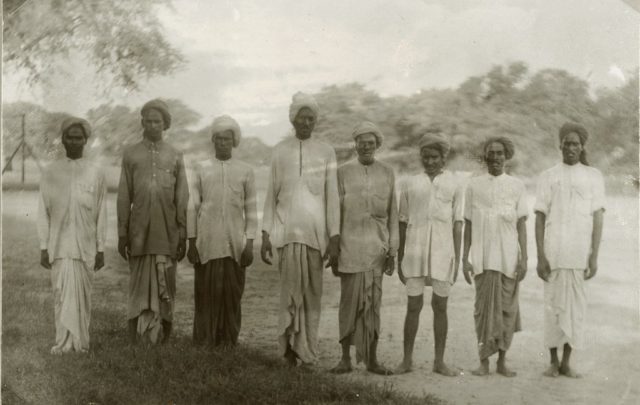During ww2 india produced the largest volunteer army in world history over 2 5 million men at least 38 indians received the victoria cross or the george cross

During WW2, India produced the largest volunteer Army in world history: over 2.5 million men.
During World War II, India played a significant role in the global conflict by contributing the largest volunteer army in history. With over 2.5 million men at its peak, the Indian Army’s participation in the war was crucial to the Allied forces’ success. Not only did India provide a vast number of soldiers, but it also witnessed heroic acts that led to the recognition of 38 Indians with the Victoria Cross or the George Cross.
The Indian Army’s contribution during World War II can be attributed to several reasons. First and foremost, India was under British rule at the time and its manpower was readily available for recruitment. The British government capitalized on this by enlisting Indians to bolster their forces. The recruitment campaign was largely successful, and millions of men volunteered to fight alongside the British in various theaters of war.
One of the remarkable aspects of India’s involvement in World War II was the diverse range of roles its soldiers undertook. They fought bravely in major battles in North Africa, the Middle East, and Southeast Asia. Indian soldiers also played a crucial role in the Burma campaign, where they fought against the Imperial Japanese Army. Their extensive involvement showcased their commitment to the war effort and their dedication to defending freedom and democracy.
During their time on the battlefield, Indian soldiers displayed unparalleled valor and courage, leading to the recognition of 38 individuals with the Victoria Cross or the George Cross. The Victoria Cross is the highest military honor awarded for gallantry in the face of the enemy, while the George Cross is bestowed for acts of gallantry not in the presence of the enemy. These brave individuals hailed from various backgrounds and regions of India, demonstrating the widespread bravery and selflessness present within the Indian Army.
The stories of these individuals present a glimpse into the extraordinary feats accomplished by Indian soldiers. One such example is Khudadad Khan, the first Indian to receive the Victoria Cross during World War I. His actions in the face of heavy enemy fire saved many lives and inspired others to continue fighting. Another notable recipient of the Victoria Cross was Abdul Hamid, who single-handedly destroyed several enemy tanks during the Indo-Pakistani War of 1965.
The Indian Army’s contribution to World War II not only left a lasting impact on the outcome of the war but also showcased the courage and determination of the Indian people. Their sacrifices and selflessness serve as a testament to the spirit of patriotism and bravery that continues to define the Indian armed forces today.
For more information about the Indian Army’s role during World War II, you can refer to the Wikipedia article on the Indian Army during World War II.


Tags
Share
Related Posts
Quick Links
Legal Stuff

